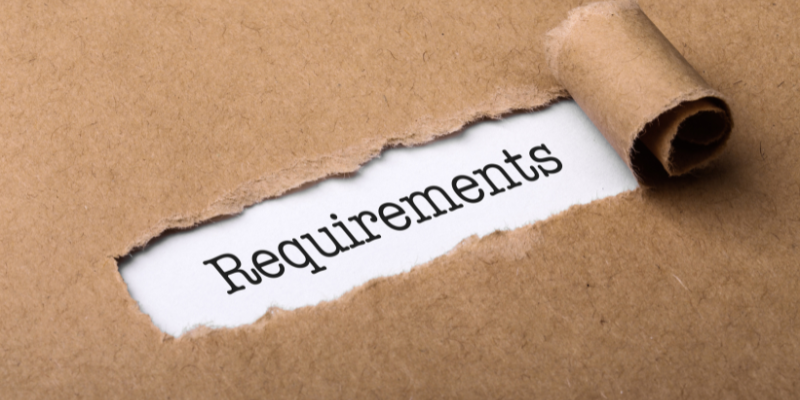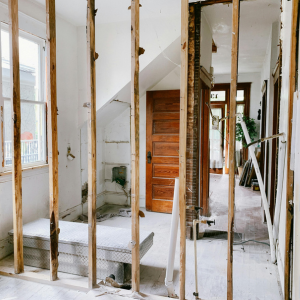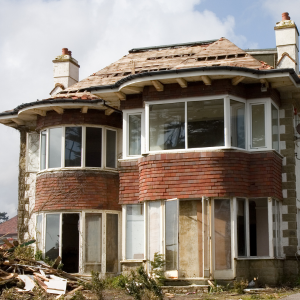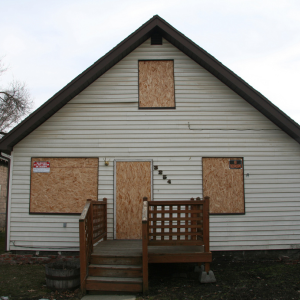
Condemned House Requirements in Phoenix, AZ: What Happens Next?
Understanding the complexities surrounding condemned houses in Phoenix, AZ, is critical for both property owners and prospective buyers. When a home is declared unfit for habitation, certain requirements and protocols must be strictly followed. This comprehensive guide outlines what steps are required after a property is condemned, including legal responsibilities, safety concerns, and restoration options. Whether you’re dealing with property maintenance, communicating with local authorities, or looking into renovation options, understanding this topic is critical for effectively navigating the complexities of condemned properties and ensuring compliance with city regulations.
Understanding Why a House is Condemned
A condemned house in Phoenix, Arizona, refers to a property deemed uninhabitable because it fails to meet local housing codes. Condemnation usually results from serious safety hazards or major code violations identified by city and municipal authorities. Understanding the reasons behind condemnation is essential for property owners to address these issues and achieve compliance with regulations. Common causes include structural deficiencies and health hazards. For those considering alternatives, working with a company that buys homes in Phoenix and surrounding Arizona cities can provide a fast and efficient solution for properties affected by condemnation.
Common Reasons for Condemnation in Arizona

A house in Arizona can be condemned for a variety of reasons, the majority of which are related to safety and compliance concerns. Structural integrity is a major contributing factor. Buildings with faulty foundations, roofs, or other critical components frequently fail to meet city codes, posing serious risks to occupants. Property owners are required by municipal regulations to maintain their structures in such a way that they do not collapse or injure people.
Faulty critical systems, such as plumbing and electrical, can also result in condemnation. When these systems are unsafe, they not only violate municipal codes but also pose serious threats to public safety, such as fires or water contamination. Ensuring that these systems are operational and up to date is an important step toward avoiding condemnation.
Blight is yet another common reason for property condemnation. Homes that fall into severe disrepair due to neglect or abandonment contribute to neighborhood decay. City codes emphasize property maintenance to promote community health and reduce housing blight, which helps protect the value and safety of nearby homes.
Health concerns, such as mold or pest infestations, are another reason for condemnation. Such conditions violate health regulations, which can result in severe penalties for property owners. Addressing these issues as soon as possible not only ensures compliance with city laws but also protects the property and community from potential hazards.
How Safety and Health Factors Impact Condemnation
Property condemnation must consider safety and health because they affect public health and welfare. Arizona law prioritizes citizen safety by condemning major safety risks. Gas leaks and unstable walls endanger occupants, neighbors, and first responders and must be addressed immediately. To prevent tragedies, municipal inspectors quickly identify unsafe properties.
Health concerns are equally important in condemnation. Hazardous materials like asbestos and lead pose health risks and violate health regulations. Continuing code violations, such as poor sanitation and pest infestations, threaten residents’ health and make the property subject to city condemnation.
To keep properties safe, city enforcement teams strictly enforce health and safety codes. Compliance is a moral obligation that protects the community from harmful living conditions. Phoenix enforces these laws strictly, and unsafe properties are condemned quickly.
By addressing safety and health issues, homeowners can comply with municipal and community standards. Preventive measures keep properties habitable, protect their value, and avoid condemnation. Understanding these factors helps homeowners keep their properties safe, compliant, and secure.
Immediate Steps After a Condemnation Notice
Receiving a condemnation notice in Phoenix, AZ, can be daunting for property owners, but knowing the right steps to take is essential. Understanding the process is key to fulfilling legal obligations and recognizing Maricopa County’s role in enforcement. Ensuring the property complies with all city and municipal codes can help remove the condemnation status. Property owners must act promptly to address zoning violations and meet city code requirements while maintaining proactive communication with local authorities. For guidance on navigating this process, see here’s how A2B Invest can help.
Legal Obligations and Compliance Requirements
When a property owner in Phoenix receives a condemnation notice, they are subject to a number of immediate legal obligations. The first step is to address the code violations that prompted the notification. Understanding the specific municipal codes and Arizona state laws that govern property standards can help you determine which areas require immediate attention. Common issues include structural flaws or hazardous living conditions, all of which must be addressed immediately to lift the condemnation status.
Property owners should thoroughly review all existing violations. The city’s code enforcement department issues detailed guidelines outlining violations and suggested corrective actions. Hiring a licensed inspector or reputable contractor who is familiar with local building codes is frequently required to ensure that repairs meet the required standards.
All repair and reconstruction efforts must adhere to Phoenix’s zoning laws and Arizona property regulations. Compliance agreements, which are legal documents that specify corrective actions and deadlines that the property owner must adhere to, may also be required. Failure to follow these agreements may result in additional legal action, complicating the process of restoring the property’s lawful status.
Proactive communication with city officials is essential throughout the process. Demonstrating a commitment to resolving compliance issues increases the likelihood of the property being reinstated for habitation or other use. Property owners can successfully address violations and regain control of their condemned property by adhering strictly to municipal requirements and legal expectations.
Maricopa County’s Role in the Condemnation Process
Maricopa County plays an important role in the condemnation process by establishing a framework for assessing and managing properties after a condemnation notice is issued. When a property in Phoenix is condemned, county officials collaborate with city code enforcement to ensure that all municipal codes are strictly enforced. The county focuses on assessing and verifying violations that justify condemnation, ensuring that the process adheres to solid legal standards.
County oversight includes facilitating inspections and enforcement actions, which are critical in addressing blighted properties. This collaborative approach ensures that condemned houses meet Arizona’s safety and health regulations, particularly those governing structural integrity and potential hazards. Such intervention contributes to neighborhood safety and property values while mitigating the negative impact of neglected properties.
Maricopa County also acts as a liaison between property owners and city officials. They advise on the compliance procedures required to lift a condemnation, including resources for navigating legal paperwork, understanding municipal codes, and planning property rehabilitation. While the county does not perform repairs directly, its assistance is critical in ensuring owners understand and follow the steps necessary to restore compliance.
Property owners can navigate the complex process of returning condemned properties to compliance by utilizing Maricopa County’s resources and guidance. This supervision helps to prevent future enforcement actions, protects property investments, and promotes community welfare by ensuring that homes are safe, habitable, and meet local standards.
The Process to Bring a Condemned House Up to Code

Understanding complex municipal codes and implementing necessary renovations to meet these standards are required to bring a condemned house in Phoenix back into compliance. This process includes thorough evaluations by city inspectors, adherence to compliance agreements, and a search for resources available to property owners. Knowing the specific requirements and options available is critical for property owners looking to bring their property back into compliance, allowing them to either rehabilitate or resell without facing further legal ramifications or blight accusations. It is a collaborative effort involving local governments, legal frameworks, and homeowner due diligence.
Understanding Property Code Compliance
Property code compliance in Phoenix is an important factor in reversing a condemned status. A house is considered condemned when it violates city or municipal codes due to structural flaws, insufficient facilities, or dangerous conditions. These codes exist to protect public safety and community welfare, so property owners must understand the specific violations identified in the condemnation notice.
Phoenix municipal codes address a variety of issues concerning building safety and habitability, requiring all structures to meet standards that reduce hazards and improve living conditions. Homeowners should begin by carefully reviewing the Notice of Violation, which details the areas of non-compliance and outlines the repairs and improvements required to restore the property’s legal status. Understanding these requirements in detail is critical, as failing to do so can cause the condemnation process to be delayed.
Hiring a licensed inspector who is familiar with local codes can help streamline the process. Inspectors advise on both the practical and legal aspects of code compliance, ensuring that repairs address all violations effectively. Their expertise assists homeowners in implementing corrections in accordance with city standards, lowering the risk of future enforcement actions.
Property code compliance goes beyond simply meeting legal requirements; it ensures a property meets community standards and expectations. Achieving compliance helps prevent future legal issues, preserves the home’s market value, and protects the health and safety of both occupants and neighbors. With careful planning and proactive measures, even a condemned house can be restored into a safe, habitable home. For homeowners or sellers looking for a quicker solution, investor home buyers in Tucson and other cities in Arizona can provide an efficient way to manage properties needing compliance or repairs.
Options and Resources for Homeowners
Phoenix homeowners renovating a condemned house have many resources. Knowing municipal codes and using public and private resources to bring condemned properties into compliance are essential to solving the problem. The city’s code enforcement office can advise and specify requirements based on the property’s violations. Compliance agreements, which outline corrective actions and deadlines, are also explained to homeowners.
Phoenix provides property owners with financial aid and professional consultations. Restoration of blighted properties can improve the community, so community development programs may provide grants or loans to cover renovation costs. Local nonprofits often offer expertise or volunteer labor for minor repairs, reducing homeowners’ financial burden and easing renovation.
Real estate attorneys familiar with Arizona property laws can help homeowners who are overwhelmed by legal issues. Attorneys help interpret compliance agreements, negotiate extensions, and challenge unjust or improper condemnations. Their guidance streamlines municipal processes and ensures legal compliance for homeowners.
While homeowners are ultimately responsible for addressing code violations, leveraging available resources can make the process much more efficient. City programs, along with Maricopa County’s enforcement and advisory support, assist in transforming condemned properties into valuable assets. These resources help property owners resolve compliance issues, enhance community safety, and increase the value and livability of their homes. For professional assistance, A2B Invest can help homeowners through the process.
| Step/Resource | Description | Benefit |
|---|---|---|
| Inspection and Assessment | Hire a certified inspector to evaluate the property’s condition. | Identifies structural and safety issues requiring attention. |
| Permit Acquisition | Obtain necessary permits before beginning any rehabilitation work. | Ensures compliance with local building codes and regulations. |
| Structural Repairs | Address foundational, roofing, and critical structural repairs. | Enhances property safety and longevity. |
| Utility Upgrades | Update electrical, plumbing, and HVAC systems to meet standards. | Improves functionality, safety, and energy efficiency. |
| Interior and Exterior Renovations | Restore or replace non-structural elements, such as walls, flooring, and siding. | Increases aesthetic appeal and marketability. |
| Final Inspection | Arrange for a final compliance inspection by local authorities. | Officially certifies the property as safe and up to code. |
This table provides an overview of the critical steps and resources for homeowners aiming to rehabilitate a condemned property, thus ensuring safety, compliance, and enhanced property value.
Potential Outcomes for a Condemned House

When a house is condemned in Phoenix, AZ, property owners face significant challenges in determining what to do next. The outcomes usually involve a choice between renovation and demolition, both of which have distinct implications. Renovation can provide the opportunity to bring the house into compliance with city and municipal codes, potentially increasing its market value. In contrast, demolition may be pursued if the cost of compliance and renovation exceeds the property’s value. This decision requires a thorough examination of code violations, structural integrity, and potential blight impacts, all of which will have a significant impact on the condemned property’s future.
Renovation vs. Demolition: Making the Right Decision
Deciding whether to renovate or demolish a condemned house in Phoenix, AZ, necessitates a thorough examination of structural issues, health risks, and municipal code violations. Renovation may be possible if the foundation is solid and the repairs are manageable, with licensed contractors ensuring compliance with city regulations.
Demolition may be a better option for severely damaged properties, costly repairs, or houses that have a negative impact on nearby areas. This approach can also help with urban renewal and reduce public safety risks.
Property owners should consult with city officials and contractors to better understand compliance requirements and look into available resources or financial assistance through municipal and Maricopa County programs. Making informed decisions requires taking into account costs as well as potential resale value.
Understanding these procedures helps both homeowners and investors. Effectively managing condemned properties can help to restore compliance, improve safety, increase property value, and contribute to overall community improvement.
FAQs:
What are the common reasons for a house to be condemned in Phoenix, AZ?
In Phoenix, AZ, houses are often condemned due to failure to meet housing standards, which stem from severe code violations and safety or health hazards. Common reasons include structural integrity issues, faulty plumbing or electrical systems, blight from neglect or abandonment, and health risks such as mold or pest infestations.
What immediate steps should property owners take upon receiving a condemnation notice?
Upon receiving a condemnation notice, property owners should focus on addressing code compliance violations. This involves understanding specific municipal codes that have been breached, conducting a detailed review of violations, engaging a licensed inspector or contractor, and communicating proactively with city officials.
How does Maricopa County assist in the condemnation process?
Maricopa County plays a crucial role in the condemnation process by working with city code enforcement to assess and verify property violations. The county facilitates inspections and offers guidance on compliance procedures, serving as an intermediary between property owners and city officials to help lift condemnation status.
What are the options available for restoring a condemned house to compliance?
Restoring a condemned house involves understanding municipal codes, conducting thorough evaluations by city inspectors, adhering to compliance agreements, and seeking available resources. Options include financial aid, professional consultations, and engaging with local authorities for guidance on necessary renovations.
When should property owners consider demolition over renovation?
Demolition should be considered when the cost of compliance and renovation outweighs the property’s value or when code violations and structural issues are extensive. In such cases, demolishing the property may be more viable, especially if it poses risks to public safety and the surrounding community. Learn the key requirements and next steps for condemned houses in Phoenix, AZ. Understand legal procedures, homeowner responsibilities, and opportunities for renovation or sale. Get practical insights on property assessments, zoning laws, repair mandates, and financial considerations to make informed decisions. Whether you’re a homeowner, investor, or community member, this guide helps you navigate condemned properties effectively.
Helpful Phoenix Blog Articles
• Successfully Selling A Probate House In Phoenix, AZ
• Selling Your Phoenix, AZ, Home During Foreclosure
• Selling Your Phoenix, AZ, Home By Owner Without A Realtor
• Guide To Selling A House With A Mortgage In Phoenix, AZ
• How To Successfully Sell A Home With Code Violations in Phoenix, AZ
• Selling A Home Needing Repairs in Phoenix, AZ
• Managing an inherited home with siblings in Phoenix, AZ
• Requirements for a Condemned House in Phoenix, AZ
• Capital Gains Tax After Selling a House in Phoenix, AZ
• How Long Does an Eviction Process Take in Phoenix, AZ
• Sell Home to Pay Off Debt in Phoenix, AZ
• Can the Executor of a Will Sell Property in Phoenix, AZ?
• Sell My House for Less Than Appraised Value in Phoenix, AZ

